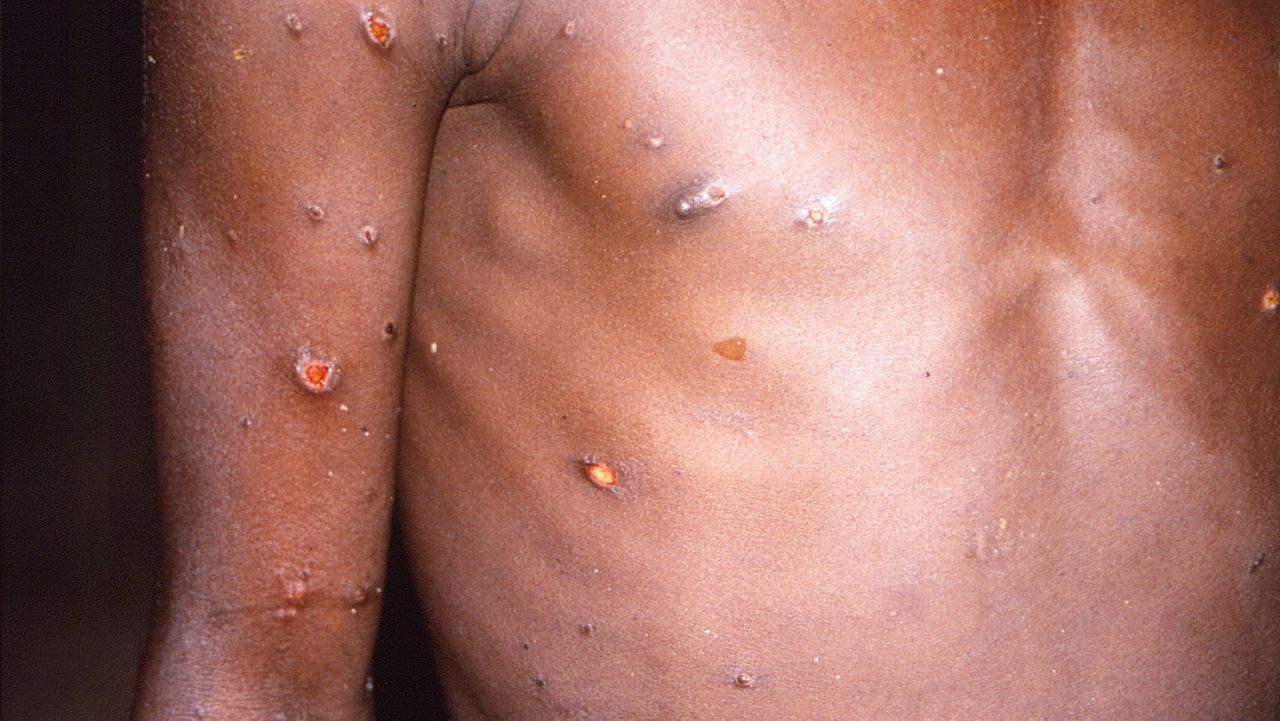The global monkeypox outbreak has resulted in 21 confirmed cases in the United States, federal health officials said Friday.
What You Need To Know
- The global monkeypox outbreak has resulted in 21 confirmed cases in the United States, federal health officials said Friday
- There have been 790 known cases worldwide across 28 countries
- No deaths have been reported during the outbreak, the Centers for Disease Control and Prevention said
- The vast majority of U.S. cases have been among men who identify as having sex with other men
There have been 790 known cases worldwide across 28 countries. No deaths have been reported during the outbreak, the Centers for Disease Control and Prevention said.
The U.S. cases are spread across 11 states.
Federal health officials are still in the process of interviewing four people with confirmed cases. Of the remaining 17, sixteen have been among men who identify as having sex with other men. The most common way the disease is spread is through close contact.
Fourteen of those 17 cases involved people who recently traveled internationally, the agency said. Three cases involved individuals who had contact with others who had previously been infected. One had no international travel link, and it was unclear how they got the disease.
Only one of the 17 cases involved a woman, the CDC said.
The strain of the virus in the outbreak is one that was first identified in West Africa, which is less severe than another, more deadly strain found in the Congo, the CDC said. The agency said two genetically distinct variants of the virus have been detected in U.S. patients, but that both share common ancestors to strains that have been found in Nigeria since at least 2017.
“We don't want to minimize this condition,” Jennifer McQuiston, deputy director of the CDC’s Division of High Consequence Pathogens and Pathology, told reporters during a call. “The rash caused by monkeypox virus can spread widely across the body or present in sensitive areas like the genitalia. It can be really painful, and some patients have reported needing prescription pain medicine to manage that pain.”
Monkeypox is a viral disease that originates in wild animals such as rodents and primates and occasionally jumps to people. Most human cases have been in central and west Africa, where the disease is endemic.
Monkeypox begins with fever, headache, muscle aches and exhaustion followed by lesions. It can result in long-term scarring of the skin.
There have been four confirmed cases in each California and New York, three cases in Florida, two each in Colorado and Utah, and one each in Georgia, Illinois, Massachusetts, Pennsylvania, Virginia and Washington state. One of the Florida patients tested positive while visiting the United Kingdom.
All the patients are currently in recovery or already have recovered, the CDC said.
Health officials said they are working with state and local agencies and doctors to contain the disease, learn more about how the outbreak began and and determine how it’s spreading in the United States, including through contact tracing. Officials are urging health care providers to step up testing if they suspect monkeypox, which will likely lead to a rise in cases.
“There could be community-level transmission that is happening, and that's why we want to really increase our surveillance efforts,” McQuiston said.
The CDC provided a timeline for the outbreak, which it said started in the U.S. on May 4 when two men — one in Massachusetts, the other in New York City — sought treatment for symptoms consistent with monkeypox. Three days later, the U.K. announced a confirmed case there in a man who had recently traveled to Nigeria, and about a week later, there were more cases linked to that man.
Shortly after, the men in Massachusetts and New York tested positive for orthopoxviruses, which include monkeypox. Then a handful of state health departments received reports about additional confirmed monkeypox cases.
While monkeypox can spread in communities, health officials said Friday they believe the public health risk is low.
“While we need to remain vigilant and seek to contain the spread of monkeypox, the good news is that we already have the vaccines and treatments needed to respond,” said Dawn O'Connell, assistant secretary for preparedness and response at the Department of Health and Human Services.
Dr. Raj Panjabi, the White House’s senior director for global health security and biodefense, said the federal government is prepared to respond to the outbreak through testing, tracing, and providing vaccines and treatments.
He said, to date, there have been 1,200 vaccines and 100 treatment courses administered in the U.S.
There are two vaccines available, which are recommended for people with occupational exposure to monkeypox and individuals deemed high-risk contacts of infected people.
While O’Connell would not disclose how many doses of vaccines are in the nation’s emergency stockpile, citing national security concerns, she said, “We have enough vaccine on hand to manage the current outbreak.”



